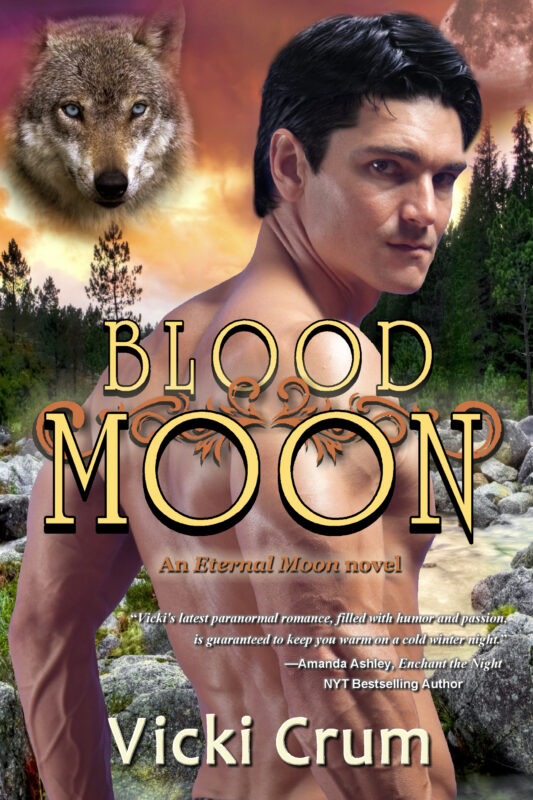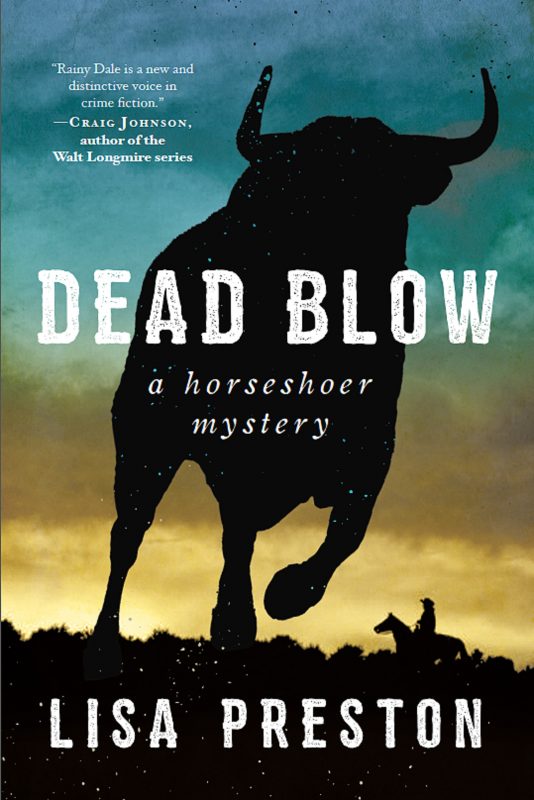Meet the Cast from The Last Goodnight
November 8, 2021 by marianne h donley in category Apples & Oranges by Marianne H. Donley, Guest Posts
THE LAST GOODNIGHT is Kade Logan’s story, the first book in my new Blood Ties series. The story, set on Kade’s Diamond Bar ranch in Colorado, revolves around the unsolved murder eight years ago of his estranged wife. Now Heather’s car has been hauled out of a nearby lake and Kade is determined to track down the man who killed her.
To handle the job, Kade hires Eleanor Bowman, a private investigator who works for Nighthawk Security in Denver. Unfortunately, their efforts to solve the murder lead them into far greater peril than either of them are prepared to handle.
It’s my pleasure to introduce you to the characters in the story.
The Hero
Kade Logan, our hero, is a throwback to another place and time. He is a real-life cowboy who owns and runs a nineteen-thousand acre cattle ranch a three-hour drive northwest of Denver.
From the day he was born, Kade was meant to be a rancher. Raising cattle, spending most of his time out of doors, it’s everything he loves—unlike his two brothers, Gage and Edge, who want nothing to do with the ranching way of life.
At six-foot-two, with sun-streaked mink brown hair and a wide-shouldered, vee-shaped body, hard-muscled from his work on the ranch, Kade has no trouble attracting women.
Unfortunately, after years of his late wife’s infidelities, there is no way he is getting trapped by a beautiful woman again. Learning to trust is Kade’s biggest issue, not one easily resolved. That and the guilt and rage he feels for not bringing Heather’s killer to justice.
The Heroine
Enter our heroine, Eleanor Bowman. Ellie stands five feet-four-inches tall, with thick dark auburn hair and a spectacularly sexy figure.
Ellie, a private investigator, specializes in going undercover, being able to blend in with different types of people and their surroundings. She’s been hired for everything from catching a cheating husband to finding employees who have been stealing for years.
Though she prefers not to carry a weapon, Ellie owns a Glock 9, semi-automatic pistol and is a very good shot.
Raised on a small ranch in Wyoming, which the family lost when the bank foreclosed, Ellie hasn’t had it easy, but even after a failed marriage, she’s managed to do a good job of taking care of herself. With her background in ranching, Ellie is the perfect person to go undercover on Kade’s ranch.
Of course, being distrustful of women, Kade is completely against the idea. Especially when he feels an instant attraction to Ellie. Though he’d like to take her to bed, having her snooping around the ranch is a whole different matter. Forced to make a decision and determined to find Heather’s killer, Kade finally agrees to hire her.
It doesn’t take long for him to admit he is damned glad he did.
The Town
The tiny town of Coffee Springs not far from the ranch is a character in the novel. There is Rocky Mountain Supply, a big metal building that’s the only mercantile for miles around. Murray’s Grocery is just down from the Coffee Springs Bed and Breakfast, which is close to the post office. Across the street, you’ll find Fred’s Gunshop and Dentistry, and just down the block, the hub of town, the Coffee Springs Café.
The place wouldn’t be a Colorado cow town without the Elkhorn Bar and Grill and its Friday night dances, with music by the local country western band.
Some of the locals include the town gossip, Frances Tilman, the stout, gray-haired manager of the mercantile; handsome, dark-haired, blue-eyed Jonas Murray, the local ladies’ man; and Sheriff Glen Carver, an attractive blond man who, like the good-looking bartender at the Elkhorn, may or may not have been involved with Kade’s late wife. Speculation is that one of her lovers killed her.
It’s Ellie’s job to find out which one. The trouble is, to do it, she needs to leash her unwanted attraction to Kade and keep both of them safe as problems erupt on the ranch and the danger escalates from an investigation to matters of life and death.
I hope you’ll watch for THE LAST GOODNIGHT and that you enjoy it.
Till next time, all best wishes and happy reading, Kat.
You can read a review of The Last Goodnight, here on A Slice of Orange. And you can read an excerpt here.
Some of Kat Martin’s Books
0 0 Read more
Wings of Silk Book Tour and Giveaway
November 4, 2021 by marianne h donley in category Apples & Oranges by Marianne H. Donley, Rabt Book Tours tagged as #Giveaway, #RABTBookTours, @RABTBookTours, Li-Ying Lundquist, Wings of Slik
Historical Fiction
Published: November 2, 2021
Publisher: Acorn Publishing
After surviving a childhood under the oppressive rule of Chairman Mao’s “Cultural Revolution,” a young, courageous teenager abandons her life in China for the freedom of the unknown in America. Arriving at the New York City doorstep of family members she’s never met, Ying-Ying has been promised they’ll help her learn English and accomplish her dream of attaining a college degree. But weeks later, she’s kicked out without explanation. Now a homeless immigrant, Ying-Ying must learn who to trust, how to find work, and how to succeed in a bustling metropolis that looks the other way. Overcoming obstacles of abandonment, heartbreak, and injustice in a foreign land, she remains fiercely determined to become a woman who will impact the world. An incredible story of second chances, Wings of Silk reminds the reader that underneath the fragile form of an individual, a strong and resilient heart is always ready to take flight.
About the Author
Li-Ying Lundquist was born and raised in China under the strict regime of Chairman Mao’s “Cultural Revolution.” The daughter of intellectual parents, her life was in constant danger and she grew up believing academic performance and perfectionism were the keys to survival and fulfillment. After high school, following a strong desire to find freedom and get to know family members who lived in the United States, Li-Ying left her life in China to pursue the American dream.
Overcoming the plights of a young immigrant who did not speak the language, Li-Ying obtained her master’s in computer science from a prestigious university and became a successful lead engineer. While working for AT&T Bell Labs, she and her team made the world’s first “text message” for mobile phones.
Today, she is happily married to a wonderful man and has two darling sons whom she loves with all her heart. An advocate of freedom founded on self-respect and happiness, she hopes readers of Wings of Silk will be inspired by the lessons of forgiveness, grace, and God’s powerful love.
Contact Link
Purchase Links
I believe there is not a single soul in this world that understands my disappointments, exhaustion, and hopelessness. I assume both Francis and Kaito are married and have their own children now. I don’t want to burden them, plus they must hate me: I am the one who broke up with them. I even start to think I am a horrible human being, unworthy of any happiness.
Soon I think of suicide, and the negative come without reprieve. Life is too hard. I’m such an imperfect person and I deserve an awful marriage. This overwhelming pain is also impacting my child. I have little happiness in my life, and nothing I’m looking forward to. The American Dream I’ve worked so hard for isn’t enough. I am extremely depressed and my hope is so nonexistent that I just want it all to end. I research methods of suicide and ruminate over which way I should go about it.
One night, I’m determined to do it. I decide I’ll try to overdose on pills. I scour all of our medicine cabinets, and have my pill cocktail all ready to take before I go to bed. Dylan is working late downstairs in his office, but he’ll be up later, and I want it to be him. I want it to be him who finds me and has to explain this to everyone. When it’s time to go to bed, I burst into tears. I sit on the bathroom floor, my face soaked and my body shaking as I talk myself into the commitment for what I’ve decided is the only answer for my future. There is no other. It’s terrible. I see no way out of the life I’ve buried myself in, and I tell myself that if I do this, everyone else will be better off too. No one wants such an empty and sinful person around.
Yes, that’s it.
I stand on shaky limbs. I fill up a cup with water that will help me swallow the handfuls of pills I’ve laid out. I watch the cup fill until my eyes are blurry and it begins to overflow in the sink. I never imagined this. I never thought my end would happen in such a manner. I never understood why someone would do this, but now I do. I thought death was the worst thing that could happen to a person, but now I know better. Suffering without any hope of a way out, that is worse.
I take a deep breath, and feel peace that soon this will all be over. I grab the first pill and take it. I grab the second pill and take it. I grab a third pill and take it. I grab the fourth, but hear Isabella. She is crying and calling for me. I can’t ignore her, and it’s probably best I say goodbye, take one last look at her.
I go into her room, and immediately take her into my arms, soothing her and telling her all the words I wish someone would say to me.
“It’s okay, my darling. It’s all going to be okay. You are safe. You are loved. I love you.”
She’s had a nightmare and tears have wet her face like they have mine. I stroke her hair and take in her face as she calms. As her breathing settles and she starts to fall back asleep, a smile creeps out from her lips. The sweetness of the moment makes me smile as well. I watch her sleep, and take in her room. Hanging on the wall is my butterfly kite. I hung it in her room when we moved into this house, but had forgotten it was there. I stare at it, and remember what it feels like to look back and see how far I’ve come. Though I’m ashamed of so much of my life, perhaps it shouldn’t be over yet. Perhaps, I’ll get stronger. Perhaps something more is out there for me. This thought is enough of a pull that when I go back to my room, I throw the rest of the pills away. For today, I want to be able to see Isabella’s smile tomorrow. I can’t miss that just yet. Deep down, I’m terrified one day I will lose control again to let this episode repeat.
I cannot do this to my darling Isabella.
0 1 Read more
Author Spotlight: Jennifer D. Bokal
October 29, 2021 by marianne h donley in category Apples & Oranges by Marianne H. Donley, Spotlight tagged as Halloween, jennifer D. Bokal, new release, Paranormal Romance, Wild Rose Press
Today we are happy to spotlight Jennifer D. Bokal. Jennifer has a new release, AS ABOVE SO BELOW, featuring a witch, a vampire hunter, and a vampire lurking in the woods—just in time for Halloween. You can learn more about Jennifer on her website, Smart, sexy romance for smart, sexy women.

Jennifer D. Bokal penned her first book at age eight. An early lover of the written word, she decided to follow her passion and become a full-time writer. From then on, she didn’t look back.
She earned a master of arts in creative writing from Wilkes University and became a member of the Romance Writers of America and International Thriller Writers. She has authored several short stories, novellas and poems. Winner of the Sexy Scribbler in 2015, Jennifer is the author of the Ancient World Historical series the Champions of Rome and the Harlequin Romantic Suspense series, Rocky Mountain Justice and the connected series, Rocky Mountain Justice: Wyoming Nights. She is also the author of Coltons Secret History, Book 3 in the Coltons of Kansas series and Coltons Internal Affair, Book 9 in the Coltons of Grave Gulch series—also from Harlequin Romantic Suspense.
Happily married to her own Alpha Male for more than 25 years, she enjoys writing stories that explore the wonders of love. Jen and her manly husband live in upstate New York with their three beautiful daughters, two very spoiled dogs, and a kitten that aspires to one day become a Chihuahua.

AS ABOVE SO BELOW
Jennifer D. Bokal
Halloween, Romance, Paranormal
Wild Rose Press
October 2021
ASIN: B09HGDKMTH
ISBN: 9781509239986
About the book
A search for information about his grandfather’s mysterious death leads Army physician, Carter Balan, to the town of Ancient Oaks.

Fiona Moon has a secret. Her magical abilities have been fading since her 40th birthday and with Halloween only a week away, the witch fears that her powers are gone for good.
When Carter walks into her bookshop, Fiona knows exactly who he is—the first boy she ever kissed. Carter has no memory of Fiona or the fact he comes from a long line of vampire hunters. When a vampire is discovered in the woods, Fiona and Carter must work together to destroy the creature. Can Carter recover his stolen memories before it’s too late?
Will he accept his family history and pick up where his grandfather left off?
Can Fiona find a way to harness her powers and save the town?
Read an Excerpt: The Last Goodnight
October 25, 2021 by marianne h donley in category Apples & Oranges by Marianne H. Donley, Spotlight tagged as Blood Ties Series, Kat Martin, new release, New Romantic Thriller, New York Times Best Selling Author, The Last Goodnight

The Last Goodnight
Kat Martin
Kensington Publishing Corp.
October 26, 2021
ISBN 978-1-4967-3679-6
Review of The Last Goodnight
Excerpt
The Last Goodnight
Kat Martin
Kade Logan stood on the bank watching the sheriff and his deputies haul the mud-covered vehicle out of the lake. The crane groaned as the automobile tilted upward, the rear end lifting into the air, the front wheels dragging across the spongy earth. Brackish lake water poured out through the open windows.
For eight long years Kade had been haunted by the mystery of what had happened to the dark green Subaru that belonged to his dead wife. Her body had been found in a shallow depression in the hills at the base of the mountains outside Denver, but until now, eight years later, her car had never been found.
And her killer had never been caught.
“You okay?” Sam Bridger, Kade’s best friend, stood beside him, a tall blond man Kade had known for years.
“She’s been dead eight years, Sam. So yeah, I’m okay.” But the rage he felt had never lessened. It should have. At the time of her death, their marriage was already on the rocks. The second time Kade had caught Heather cheating, he had filed for divorce.
“Maybe they’ll find something in the car that’ll give them a reason to reopen the case,” Sam said.
“Maybe.” Kade hoped so. He wanted Heather’s killer found and punished. No matter how things had turned out between them, he owed her that much.
He glanced back at the car. The last time he had seen the dark green SUV was the night Heather had left him. That night, she had packed her things, taken the car, and driven away without a backward glance. Kade had never seen her again.
Since then, he had been tormented by guilt, had lived each day with a terrible sense of failure that he had never found the man responsible for her death.
Never made the bastard pay.
“I’ve seen enough,” Kade said. “I’m heading back to the ranch.”
“That’s it?” Sam asked, a blond eyebrow edging up.
Kade thought of Heather and felt the old rage burn through him. “Not by a long shot,” he said.
Eleanor Bowman sat at her oak desk near the front door of the office, a two-story brick structure on Acoma Street in Denver.
Photos of local wildlife hung on the walls, elk, deer, a big black bear, along with autographed photos of celebrities the company had done business with over the years. The faces of Tom Selleck, Clint Eastwood, Denzel Washington, and Kevin Costner looked down from sturdy oak frames.
Though most of the guys who worked at Nighthawk Security held P.I. licenses, Ellie and a woman named Skye Delaney were the only two female private investigators. Since Ellie had just finished a case, she was looking for something to do, hopefully something interesting, but work was work. She didn’t want her savings account to dwindle.
She looked up as the glass door at the front of the office swung open and a tall, broad-shouldered man wearing a dark brown Stetson walked in. People thought of Denver as a western town, but it had been years since Ellie had seen a guy in a cowboy hat who looked like it belonged on him.
In crisp dark blue jeans that fit snuggly over a pair of narrow hips, brown lizard-skin boots, and a white shirt with pearl snaps on the front, the man removed his Stetson, revealing neatly trimmed, golden brown hair, and strode toward the desk closest to the door, which happened to be hers.
“My name’s Kade Logan.” He had a lean, muscular build, and the long, powerful legs of a bulldogger. His deep, masculine voice fit him as perfectly as his hat, and his hard, handsome face could rival any of the celebrities hanging on the office walls. “I have an appointment with Conner Delaney.”
“Yes, Conn mentioned he was expecting you.” Her boss, the dark-haired, handsome man who owned and ran the company. Ellie wondered if Kade Logan could possibly be the client Conn had in mind for her.
She smiled up at Logan. “His office is down the hall. Go ahead and go on in.” A little under five-foot-four, she was at least ten inches shorter.
Logan gave her a cursory nod, then strode off and disappeared inside Conn’s office. She wondered what kind of help he needed.
Ten minutes later, she found out.
“Kade meet Eleanor Bowman.”
His eyes narrowed, tiny sun lines forming in the corners. “You’re Eleanor Bowman?”
“I’m Ellie.” She smiled and stuck out a hand. “Pleasure meeting you.”
His jaw tightened an instant before he reached out and accepted her handshake.
He turned back to Conn. “Eleanor. With a name like that, I thought she’d be an older woman, someone with more experience. Either way, this is a bad idea.”
“What idea is that?” Ellie asked.
“Eight years ago, Kade’s wife was murdered,” Conn explained. “Her body was discovered in the mountains outside Denver, but the killer was never found. Two weeks ago, the car Heather was driving the night she disappeared was discovered in a lake near Coffee Springs. It’s possible the killer abducted her, dumped the car in the lake, then drove her somewhere else and murdered her.”
“And that’s the reason you want to hire me? To find out who murdered your wife?”
Logan’s gaze swung to hers. “First off, I don’t want to hire you. Conn thought it would be a good idea. He said your specialty is working undercover, but the last thing I need on my ranch is a female playing detective.”
Irritation bubbled up and her spine went straighter. “Did Conn tell you I was born in Wyoming? I was raised on the Grass Valley Ranch near Jackson Hole. Did he tell you I can ride just about anything you have in your remuda? And the weather doesn’t bother me. I know ranching, Mr. Logan. I can fit seamlessly into your operation. I can do whatever it takes to make people accept me and gather the information you need.”
Silence fell.
Conn Delaney’s lips twitched. “I think you can see why I thought Ellie was the right person for the job.”
A muscle worked in Logan’s square jaw. He raked a hand through his hair, mussed a little from the hat.
“I need some time to think about it.”
“Are you sure?” Ellie asked. “Because you’ve already had eight years to think about it.”
Kade’s golden eyes narrowed, seemed to burn into her green ones. “You really think you can do it?”
“If you want me to succeed, I’ll need straight answers to any questions I ask. If you’re willing to do that and if the information is out there, I’ll find out who it was.”
For the first time she caught a glimmer of respect in Logan’s eyes. “When can you start?”
“I can be there tomorrow, if we can figure out the best place for me to fit in. That way I’ll know what I need to bring.”
Logan’s hard mouth edged up. “You mean besides your pistol?”
“You better make that plural.” Ellie flashed him a phony smile. “Remember, Mr. Logan, I’m from Wyoming.”

New York Times bestselling author Kat Martin, a graduate of the University of California at Santa Barbara, currently resides in Missoula, Montana with Western-author husband, L. J. Martin. More than seventeen million copies of Kat’s books are in print, and she has been published in twenty foreign countries. Fifteen of her recent novels have taken top-ten spots on the New York Times Bestseller List, and her novel, BEYOND REASON, was recently optioned for a feature film. Kat’s new novel, THE LAST GOODNIGHT, a Romantic Thriller, will be released in hardcover on October 26th and is the start of her new Blood Ties series.
More Books by Kat Martin
You can read a review of The Last Goodnight here.
0 0 Read moreResearching for Authors
October 20, 2021 by marianne h donley in category Ages 2 Perfection Online Class, Online Classes tagged as Aged to Perfection Online Class, Margaret Bates, Researching for Authors
Researching for Authors
Presented by: Margaret Bates
Date: November 1 – 30, 2021
Pricing: A2P Member fee: $15
Non-A2P Member fee: $30
About the Workshop:
Research can feel overwhelming. For some of us, it’s been years since we’ve dug deeply into a topic, but sometimes you need to know more to add realism to your book and worldbuilding.
In this class, we’ll talk about how to make a research attack plan, how to use library databases and university research sources, how to understand and read journal articles, and even the approaches for speaking with primary sources, like experts in the field. Similarly, we’ll learn about the interviewing skills you can use to talk to subject matter experts, like doctors or firemen…etc. for getting the deepest realism in crafting your heroes and heroines. Finally, we’ll discuss the risks of the “research rabbit hole” and when to stop gathering information and commit to start writing after you’ve done your due diligence.
So, if you’re interested in deeper world building, more realism in your work, and learning how to get those details you need to write a successful novel, this is the class for you!
About the Presenter:
Margaret Bates was Magna Cum Laude in psychology as an undergraduate at Duke University. During her undergraduate work, she spent six months as an intern at a state hospital for schizophrenics in La Paz, Bolivia. During her graduate work, she spent five years working toward a Ph.D. in developmental psychology with an emphasis in autism intervention therapy and was everything but dissertation at The University of Alabama at Birmingham. In December of 2020, she finished her Master’s thesis in industrial/organizational psychology at The University of Baltimore with a focus on meaningfulness in life and healthy psychological functioning. She’s spent most of her life researching and can’t wait to teach you how to as well.
0 0 Read moreAffiliate Links
A Slice of Orange is an affiliate with some of the booksellers listed on this website, including Barnes & Nobel, Books A Million, iBooks, Kobo, and Smashwords. This means A Slice of Orange may earn a small advertising fee from sales made through the links used on this website. There are reminders of these affiliate links on the pages for individual books.
Search A Slice of Orange
Find a Column
Archives
Featured Books
BLACK FOOD: STORIES, ART & RECIPES FROM ACROSS THE AFRICAN DIASPORA
Beautiful, rich, and groundbreaking . . .
More info →DEAD BLOW
Rainy will have to dig deep and use all the tools in her box to both defend herself and the people she's just learning to love.
More info →THE DAY BAILEY DEVLIN’S SHIP CAME IN
Oh, Boy! Oh, Bailey!
Just when you think it's going to be smooth sailing, Venus messes with your rudder.
Newsletter
Contributing Authors
Search A Slice of Orange
Find a Column
Archives
Authors in the Bookstore
- A. E. Decker
- A. J. Scudiere
- A.J. Sidransky
- Abby Collette
- Alanna Lucus
- Albert Marrin
- Alice Duncan
- Alina K. Field
- Alison Green Myers
- Andi Lawrencovna
- Andrew C Raiford
- Angela Pryce
- Aviva Vaughn
- Barbara Ankrum
- Bethlehem Writers Group, LLC
- Carol L. Wright
- Celeste Barclay
- Christina Alexandra
- Christopher D. Ochs
- Claire Davon
- Claire Naden
- Courtnee Turner Hoyle
- Courtney Annicchiarico
- D. Lieber
- Daniel V. Meier Jr.
- Debra Dixon
- Debra H. Goldstein
- Debra Holland
- Dee Ann Palmer
- Denise M. Colby
- Diane Benefiel
- Diane Sismour
- Dianna Sinovic
- DT Krippene
- E.B. Dawson
- Emilie Dallaire
- Emily Brightwell
- Emily PW Murphy
- Fae Rowen
- Faith L. Justice
- Frances Amati
- Geralyn Corcillo
- Glynnis Campbell
- Greg Jolley
- H. O. Charles
- Jaclyn Roché
- Jacqueline Diamond
- Janet Lynn and Will Zeilinger
- Jaya Mehta
- Jeff Baird
- Jenna Barwin
- Jenne Kern
- Jennifer D. Bokal
- Jennifer Lyon
- Jerome W. McFadden
- Jill Piscitello
- Jina Bacarr
- Jo A. Hiestand
- Jodi Bogert
- Jolina Petersheim
- Jonathan Maberry
- Joy Allyson
- Judy Duarte
- Justin Murphy
- Justine Davis
- Kat Martin
- Kidd Wadsworth
- Kitty Bucholtz
- Kristy Tate
- Larry Deibert
- Larry Hamilton
- Laura Drake
- Laurie Stevens
- Leslie Knowles
- Li-Ying Lundquist
- Linda Carroll-Bradd
- Linda Lappin
- Linda McLaughlin
- Linda O. Johnston
- Lisa Preston
- Lolo Paige
- Loran Holt
- Lynette M. Burrows
- Lyssa Kay Adams
- Madeline Ash
- Margarita Engle
- Marguerite Quantaine
- Marianne H. Donley
- Mary Castillo
- Maureen Klovers
- Megan Haskell
- Melanie Waterbury
- Melisa Rivero
- Melissa Chambers
- Melodie Winawer
- Meriam Wilhelm
- Mikel J. Wilson
- Mindy Neff
- Monica McCabe
- Nancy Brashear
- Neetu Malik
- Nikki Prince
- Once Upon Anthologies
- Paula Gail Benson
- Penny Reid
- Peter Barbour
- Priscilla Oliveras
- R. H. Kohno
- Rachel Hailey
- Ralph Hieb
- Ramcy Diek
- Ransom Stephens
- Rebecca Forster
- Renae Wrich
- Roxy Matthews
- Ryder Hunte Clancy
- Sally Paradysz
- Sheila Colón-Bagley
- Simone de Muñoz
- Sophie Barnes
- Susan Kaye Quinn
- Susan Lynn Meyer
- Susan Squires
- T. D. Fox
- Tara C. Allred
- Tara Lain
- Tari Lynn Jewett
- Terri Osburn
- Tracy Reed
- Vera Jane Cook
- Vicki Crum
- Writing Something Romantic
Affiliate Links
A Slice of Orange is an affiliate with some of the booksellers listed on this website, including Barnes & Nobel, Books A Million, iBooks, Kobo, and Smashwords. This means A Slice of Orange may earn a small advertising fee from sales made through the links used on this website. There are reminders of these affiliate links on the pages for individual books.


































































